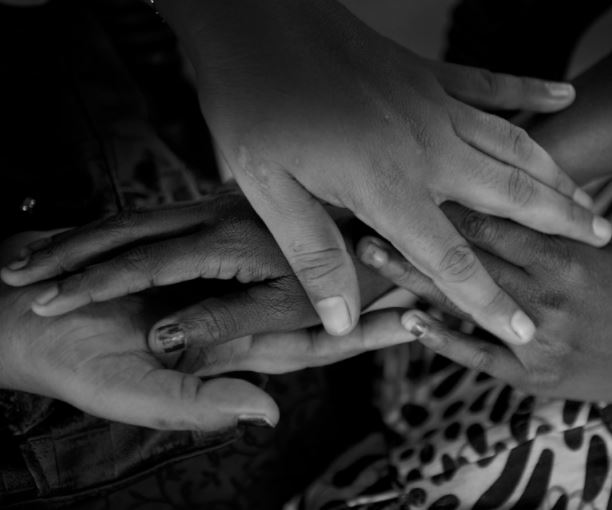Counterintuitively — at least to defence hawks who see economic openness as a threat — the collective economic sanctions imposed after Russia’s brutal invasion of Ukraine demonstrate the deep security benefits of globalisation. The economic interdependence that many think a source of weakness is actually a significant strength.
By Shiro Armstrong and Tom Westland / Australian National University
The United States and its allies have inflicted massive economic damage on Russia without firing a single shot. Sanctions have struck the Kremlin and its oligarchs. The foreign exchange reserves Russia assiduously accumulated with tight fiscal policy for years are frozen, leaving the central bank incapable of mounting defence of the rouble. Much of the banking sector has been crippled after being cut out of the SWIFT payment system. Multinational corporations are rushing to exit.
The fall of the rouble — down almost 40 per cent of its value against the US dollar — has ignited inflation. Supermarket shelves are emptying as trade embargoes bite. Faced with the prospect of capital flight, Russia’s central bank raised interest rates to levels that will bankrupt domestic firms. Dollar-denominated debt payments are now more expensive in terms of roubles and, without access to dollar reserves, Russia will likely enter technical default. Moscow’s reputation for stable macroeconomic management, hard-won but quickly shattered, will take decades to recover.
Yet some are still determined to learn all the wrong lessons. They see the effectiveness of the sanctions as confirmation that an open market is by definition a vulnerable one. It is ludicrous to think that free trade stops wars, they argue: if it did, it would have stopped Russia. This idea is dangerous and false: it will only lead to more conflict in a world in which great powers are allowed to act with impunity.
Steep price. Yet.
Recent history furnishes many examples of countries that have tried using economic weapons to extract geopolitical concessions, only to discover those weapons backfire. The global economy is large and there are always alternative buyers or sellers, unless sanctions are a global effort. Chinese trade sanctions on Australia had a limited and temporary cost: alternative markets were found for Australian goods. They have exacted a more significant cost on China, with loss of trust, and encouraged elevation of the Quad and other measures.
When a country with monopoly over a good leverages that market power it results in uncertainty and a race to find alternatives. Politicised Japanese export restrictions aimed at South Korea in 2019 led to loss of Japanese market share and Japanese companies shifting production to South Korea and elsewhere. Chinese restrictions of rare earth exports to Japan in 2010 resulted in China losing global market share: from 95 per cent of Japanese imports of the critical minerals to only 50 per cent in a couple of years. US restrictions on exporting semiconductors to Chinese firms encouraged Beijing to invest heavily in technological upgrading to reduce dependence on American supplies.
Sanctions work when they are coordinated by most of the global community and target clear, unpardonable violations of international law, like wars of aggression. Economic war is justified in these dire circumstances. There’s still a steep price for those imposing the sanctions — the blockade of Russia is likely to lead to skyrocketing energy and possibly food prices — but the balance of costs and benefits is much more favourable when the response is truly global.
China
Many Chinese are warning against Beijing providing a lifeline to Russia — as India may — lest it’s caught up in the economic squeeze by the West. The ‘no-limits’ partnership between Beijing and Moscow appears to have very real limits — dictated by economic logic, not grandiose geostrategy.
China has much more at stake than Russia in the global system. It holds US$3.5 trillion of foreign exchange reserves and is more integrated into global markets. Exorcising China from the existing economic order would come at a high price for both China and the world. That is not in the interest of the United States or its allies. Major powers have huge investments abroad that can be seized in the extreme, giving them a stake in the existing order. Economic interdependence is a powerful constraint on all sides and a powerful weapon for securing peace.
Choosing policy strategies that effectively decouple economies from one another as a response to this tragic episode would be a major strategic blunder.
Strengthening the existing economic order will ensure the United States and China remain locked into the global trading system. The long-awaited US Indo-Pacific Economic Framework should not exclude China. China’s dependence on US dollar reserves has increased as the dollar has appreciated. What would shake global confidence in the dollar as the global reserve currency is a continuation of Trump’s erratic and arbitrary economic diplomacy.
Exit strategy
Comprehensive sanctions on China would be more costly for the rest of the world than sanctions on Russia. But the calculus in an extreme scenario would be the same: a clear and massive breach of international law, global coordination and an alternative to traditional military intervention.
Economic warfare, like any conflict, needs an exit strategy. The costs of the sanctions on Russia increase daily as the economic recovery task grows. The United States and Europe must define a clear, credible exit to sanctions that will rebuild both Ukraine and Russia. The world must not reward aggression, but for very practical reasons, generous support needs to be waiting for Russia to stave off nationalism and extremism, thus avoiding a tragic repeat of Versailles in 1919, when a defeated Germany was punished so severely that it turned to revenge, rather than rebuilding its connections with the world.
Shiro Armstrong is Director, and Tom Westland Director of Research, at the Asian Bureau of Economic Research in the Crawford School of Public Policy at The Australian National University.
This piece has been sourced from the East Asia Forum of the Australian National University.
Image: Wikimedia. Representational image.












